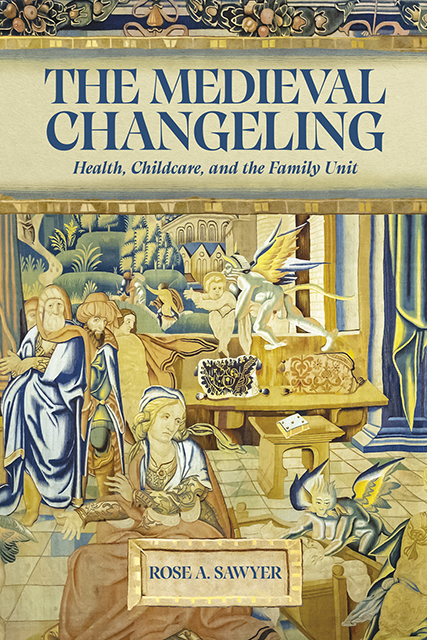Introduction
Published online by Cambridge University Press: 10 June 2023
Summary
Around the turn of the first millennium, Notker Labeo, a Benedictine monk based in the Abbey of Saint Gall in what is now Switzerland, was engaged in producing a translation/commentary of the Psalms. This resource was intended for use in the abbey's classroom, teaching Latin and Biblical commentary to students whose mother tongue was Old High German. Psalm 17 details David's celebration of God and the favour that God has shown to him by delivering him from his enemies. Verse 46 states that: ‘Filii alieni mentiti sunt mihi, filii alieni inveterati sunt, et claudicaverunt a semitis suis’ (Foreign children have lied to me, foreign children have grown old, and they have halted from their paths). Being foreign to David, these ‘filii’ are presumably not intended to be Jews. In contrast, in his commentary, Notker reads this line allegorically as being about Jews who do not have the New Testament, and are to Christians as the ‘filii alieni’ were to David. Notker's initial translation of ‘filii alieni’ into Old High German is straightforward: ‘Frémedîu chint’ (Strange/foreign children). Then, I would like to imagine that he paused, in some way unsatisfied, before adding an alternative, clarifying translation: ‘uuíhselinga iudei’. Notker's German is much indebted to the monastic tradition of glossing (matching the Latin to individual vernacular words) used in the schoolroom, and without parallels it is hard to know just what he meant by this phrase. We do know that the word ‘uuíhselinga’ was altered to ‘wehselkint’ in a manuscript created between 1210 and 1225. We also know that, by at least the fifteenth century, ‘wächselkind’ was used unambiguously to refer to creatures known in modern English as ‘changelings’.
A changeling is a creature, generally supernatural in nature, who is substituted for a human, almost invariably during the said human's infancy. While any number of characteristics have been attached to the changeling over the years, it generally does not conform to the cultural norms of childhood development in the way that a healthy human child would. Unlike in Notker's commentary, where it initially seems as if this element is only present in the term ‘uuíhselinga’ itself, the concept of substitution is clearly fundamental to the general understanding of changelings. However, a second look reveals that, theologically speaking, the commentary is directly engaging with the substitution of one chosen people for another.
- Type
- Chapter
- Information
- The Medieval ChangelingHealth, Childcare, and the Family Unit, pp. 1 - 14Publisher: Boydell & BrewerPrint publication year: 2023



